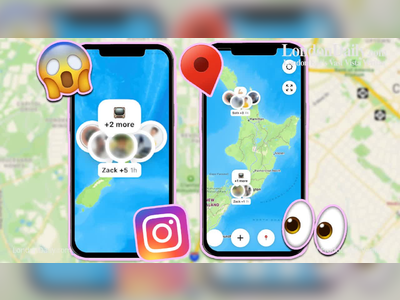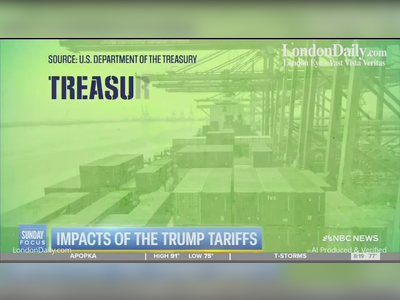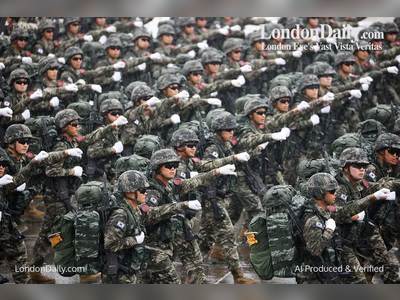
The Rise of Football Shirts: A Fashion Statement at Music Festivals
The rise of football shirts at music festivals has been a welcoming change in the fashion world.
Once associated with the unsavory side of football culture, football shirts have become a sought-after fashion statement, with some even exchanging hands for hundreds of pounds.
This trend is particularly evident at music festivals, where football shirts have become a common sight.
This year's Latitude Festival in Suffolk is no exception, with festivalgoers donning their favorite football shirts.
According to volunteer worker Sam Ralphs, the Oxfam shop at Latitude has seen a rise in the popularity of vintage football shirts.
People are not just representing their clubs but wearing the shirts as a fashion statement.
Ffion Moon, 23, from Swansea, Wales, is at Latitude Festival and wearing an old yellow Spurs shirt.
Although she is not a big football fan, she finds the shirts comfortable and looks cool.
She believes that the World Cup has helped move football away from lad culture, and women are more likely to wear football shirts now.
Shaan Sagoo, 18, from Buckinghamshire, is a Manchester United fan and wears his team's shirts wherever he goes.
He inherited his love for Manchester United from his father and grandfather, who are both fans of Eric Cantona.
Sagoo has a collection of vintage Cantona shirts, including a retro Cantona kit that his father gave him for his 18th birthday.
People often stop him at festivals to talk about his shirts and sing "Ooh, ah, Cantona." Rudi Obasi-Adams, 32, from Preston, is a regular festivalgoer who has attended Glastonbury, Leeds Festival, Sonar in Barcelona, and NOS in Portugal.
He believes that football shirts are definitely back as a fashion statement, particularly at festivals.
He has noticed that girls and older people are also wearing football shirts, making it not just a "geezer" thing.
Jack Temple, 22, from London, is wearing a 1998 Brazil shirt.
He likes his shirts baggy and is not a fan of tight shirts.
Temple Football shirts, once considered the preserve of the tasteless or nerdy, have seen a dramatic turnaround in perception in recent years.
According to Neal Heard, author of The Football Shirts Book, football shirts have become the coolest object of streetwear, with no signs of this trend slowing down.
Football shirts lend themselves to ownership and belonging, both in terms of being into something 'on trend' and showing allegiance to a team or sponsor.
They are also brand vehicles of multiple dimensions, which has helped to increase their appeal to people.
At music festivals like Latitude, football shirts have become a popular choice among festival-goers.
For many, wearing a football shirt is a way to show their love for the game and their team.
Others are drawn to the vintage or retro designs of certain shirts.
For some, like 35-year-old Joe Barker from Lowestoft, wearing a football shirt can be a way of expressing their identity and affiliation with their local team.
However, he admits that his father was worried he might face aggression from fans of the opposing team.
The popularity of football shirts has also caught the attention of artists and designers.
Corbin Shaw, for example, has used football shirts as a canvas to express his own message and subvert the traditional imagery associated with the game.
In conclusion, football shirts have come a long way from being seen as the preserve of the tasteless or nerdy.
They have become a popular choice for festival-goers and a way for people to express their identity and affiliation with their team or sponsor.
As the popularity of football shirts continues to grow, it will be interesting to see how they continue to evolve and influence fashion and streetwear.
The BBC East of England news team encourages its audience to share their stories and engage with the community through social media platforms such as Facebook, Instagram, and Twitter.
Whether it's a shirt that holds a significant personal meaning or simply looks good, the team values all opinions and is always eager to hear from its followers.
If you have a story to share, you can reach out to the team via email at [eastofenglandnews@bbc.co.uk](mailto:eastofenglandnews@bbc.co.uk) or by WhatsApp at 0800 169 1830.
Stay up to date with the latest news in the East of England by following the BBC East of England news team on social media.
This trend is particularly evident at music festivals, where football shirts have become a common sight.
This year's Latitude Festival in Suffolk is no exception, with festivalgoers donning their favorite football shirts.
According to volunteer worker Sam Ralphs, the Oxfam shop at Latitude has seen a rise in the popularity of vintage football shirts.
People are not just representing their clubs but wearing the shirts as a fashion statement.
Ffion Moon, 23, from Swansea, Wales, is at Latitude Festival and wearing an old yellow Spurs shirt.
Although she is not a big football fan, she finds the shirts comfortable and looks cool.
She believes that the World Cup has helped move football away from lad culture, and women are more likely to wear football shirts now.
Shaan Sagoo, 18, from Buckinghamshire, is a Manchester United fan and wears his team's shirts wherever he goes.
He inherited his love for Manchester United from his father and grandfather, who are both fans of Eric Cantona.
Sagoo has a collection of vintage Cantona shirts, including a retro Cantona kit that his father gave him for his 18th birthday.
People often stop him at festivals to talk about his shirts and sing "Ooh, ah, Cantona." Rudi Obasi-Adams, 32, from Preston, is a regular festivalgoer who has attended Glastonbury, Leeds Festival, Sonar in Barcelona, and NOS in Portugal.
He believes that football shirts are definitely back as a fashion statement, particularly at festivals.
He has noticed that girls and older people are also wearing football shirts, making it not just a "geezer" thing.
Jack Temple, 22, from London, is wearing a 1998 Brazil shirt.
He likes his shirts baggy and is not a fan of tight shirts.
Temple Football shirts, once considered the preserve of the tasteless or nerdy, have seen a dramatic turnaround in perception in recent years.
According to Neal Heard, author of The Football Shirts Book, football shirts have become the coolest object of streetwear, with no signs of this trend slowing down.
Football shirts lend themselves to ownership and belonging, both in terms of being into something 'on trend' and showing allegiance to a team or sponsor.
They are also brand vehicles of multiple dimensions, which has helped to increase their appeal to people.
At music festivals like Latitude, football shirts have become a popular choice among festival-goers.
For many, wearing a football shirt is a way to show their love for the game and their team.
Others are drawn to the vintage or retro designs of certain shirts.
For some, like 35-year-old Joe Barker from Lowestoft, wearing a football shirt can be a way of expressing their identity and affiliation with their local team.
However, he admits that his father was worried he might face aggression from fans of the opposing team.
The popularity of football shirts has also caught the attention of artists and designers.
Corbin Shaw, for example, has used football shirts as a canvas to express his own message and subvert the traditional imagery associated with the game.
In conclusion, football shirts have come a long way from being seen as the preserve of the tasteless or nerdy.
They have become a popular choice for festival-goers and a way for people to express their identity and affiliation with their team or sponsor.
As the popularity of football shirts continues to grow, it will be interesting to see how they continue to evolve and influence fashion and streetwear.
The BBC East of England news team encourages its audience to share their stories and engage with the community through social media platforms such as Facebook, Instagram, and Twitter.
Whether it's a shirt that holds a significant personal meaning or simply looks good, the team values all opinions and is always eager to hear from its followers.
If you have a story to share, you can reach out to the team via email at [eastofenglandnews@bbc.co.uk](mailto:eastofenglandnews@bbc.co.uk) or by WhatsApp at 0800 169 1830.
Stay up to date with the latest news in the East of England by following the BBC East of England news team on social media.










